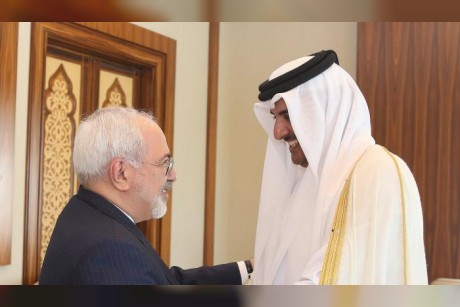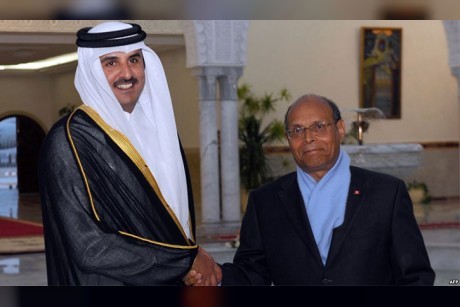Qatar’s media attaché, Jassim Bin Mansour Al-Thani, made his country's intention to mediate between Iran and the US clear recently, announcing that, “We have offered to act as an independent and impartial mediator should Iran and the US decide to come to the table for discussions.”
The plan is already in motion. Recently, Iranian President Hassan Rouhani had a phone call with the Gulf nation’s emir, Tamim bin Hamad al-Thani, while Mohammad Javad Zarif, Iran’s foreign minister, made the short trip across the Gulf to Doha to meet with Qatari officials.
But while having a Qatari genie emerge from a bottle to solve America’s most pressing problems in the Middle East sounds tempting, Qatar’s ideological commitment to virulent political Islam make them untrustworthy mediators, reported the Algemeiner.
Over the last three years especially, Qatar has refused to change its malignant behavior with regard to working to destabilize the regimes of our long-standing allies in the region. While Qatar’s support for terror, through Hamas, and its conscious decision to promote the Muslim Brotherhood should be enough by itself to prevent it from mediating between Iran and the US, and there are a host of other reasons why the supremely wealthy Gulf nation should not be given this role.
“Qatar plays both sides of the fence,” said Matthew Brodsky, a senior fellow at the Security Studies Group. “The idea of anyone [being] in between the United States and Iran is problematic because really the decision comes down to what Iran is going to decide for itself."
Just in the last several months, Qatar has made international headlines over its role in planning and carrying out a terrorist attack in Somalia, as well as its bankrolling of Islamist terrorists to fight alongside pro-regime forces in Libya. The Libyan National Army threatened to punish Qatar for its terrorist role in Libya and the region as a whole.
Most alarming, perhaps, is the security concern of allowing Doha to host the World Cup, considering it is home to influential radical Islamist hate-preachers like Yusuf al Qaradawi, who are promoted worldwide using Qatar’s massive Al Jazeera megaphone.
In May, Qatari envoy and chairman of the gulf nation’s National Committee for the Reconstruction of the Gaza Strip, Ambassador Mohammed al-Emadi, reaffirmed Doha’s “special relationship” with Palestinian Islamic Jihad and Hamas.
Indeed, it has spent untold billions in agit-prop aimed at the United States, all part of Qatar’s vast “influence war” on American public and elite opinion. Despite calls from leading security experts and Congressmen to enhance transparency on the foreign funding and direction of Qatar’s state-run Al Jazeera news network — including the better enforcement of the Foreign Agents Registration Act (FARA) — Qatar’s political warfare machine continues grinding against that nation’s enemies in this country.
Still, mediating the conflict between the United States and Iran might still be a worthwhile endeavor. But Kuwait and Oman, two traditionally neutral nations, are far better-equipped to take on such a critical and pivotal role.
Should Qatar be allowed to mediate in an official capacity between America and Iran, it would certainly greatly tip the scales in Iran’s favor. Unlike Qatar, these others nations aren’t responsible for spreading Islamism across the region and the world.



